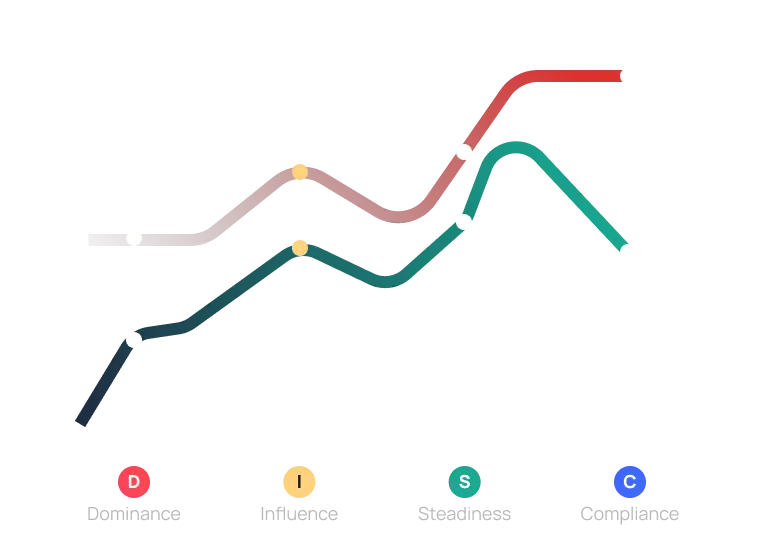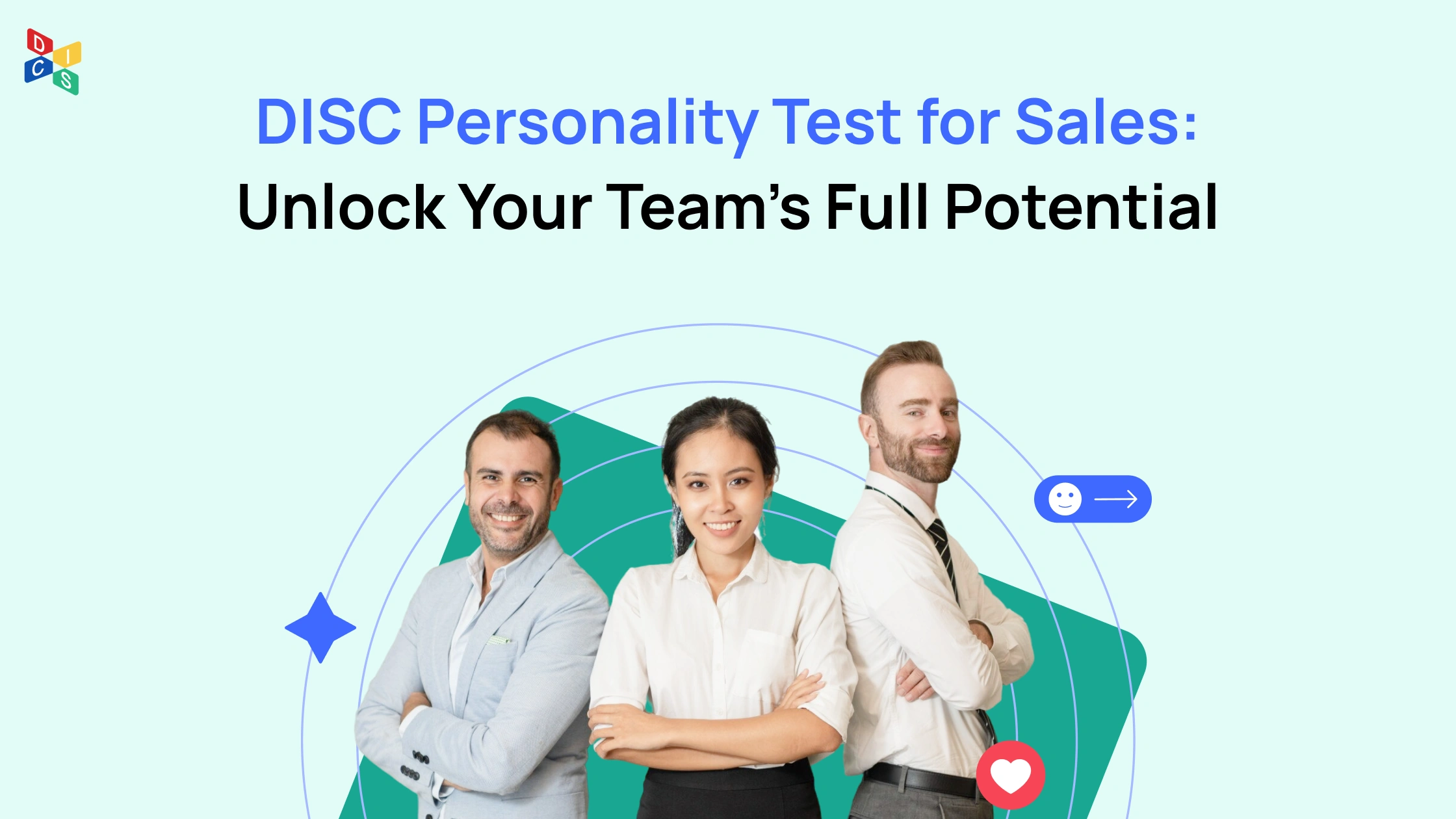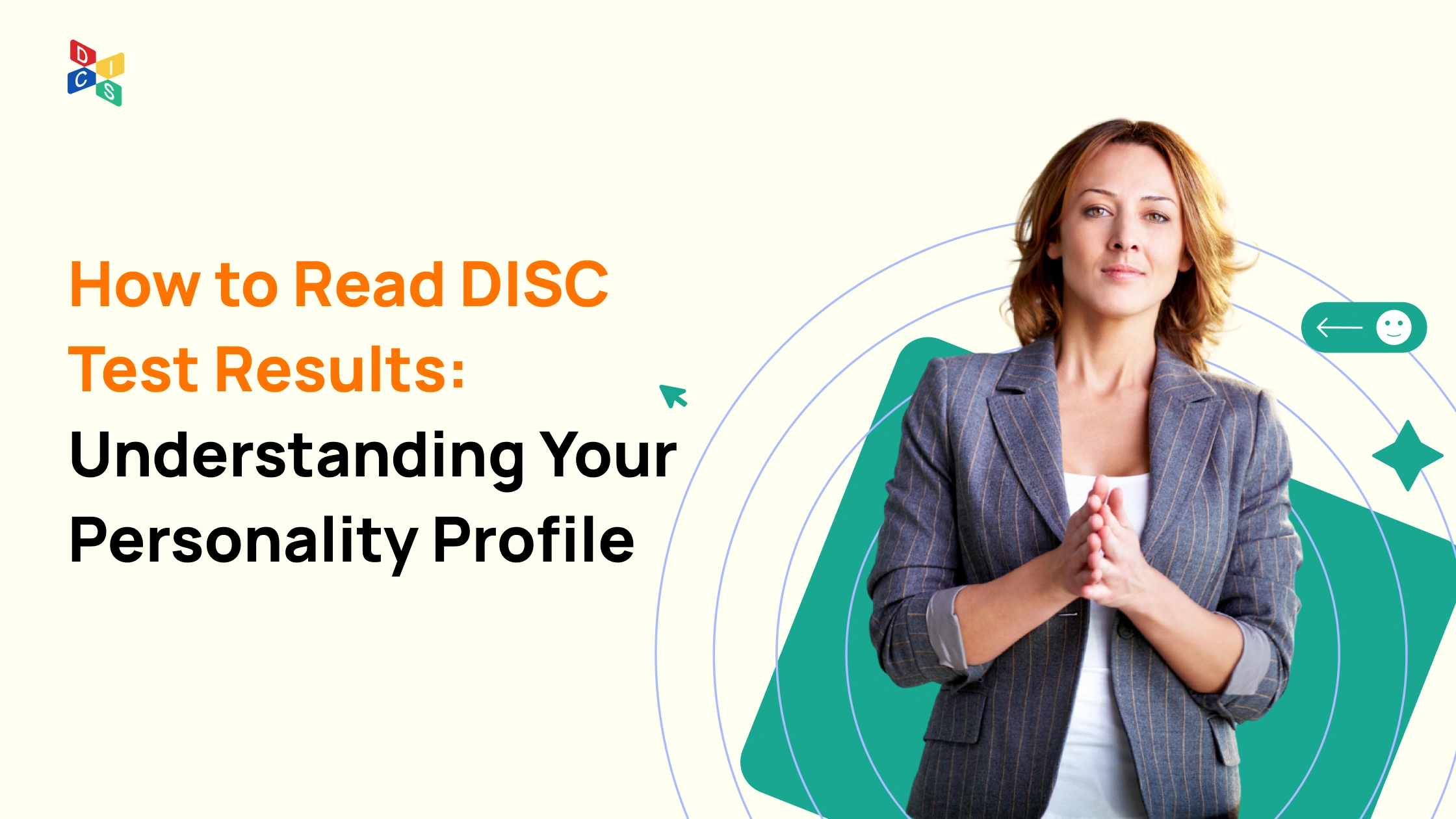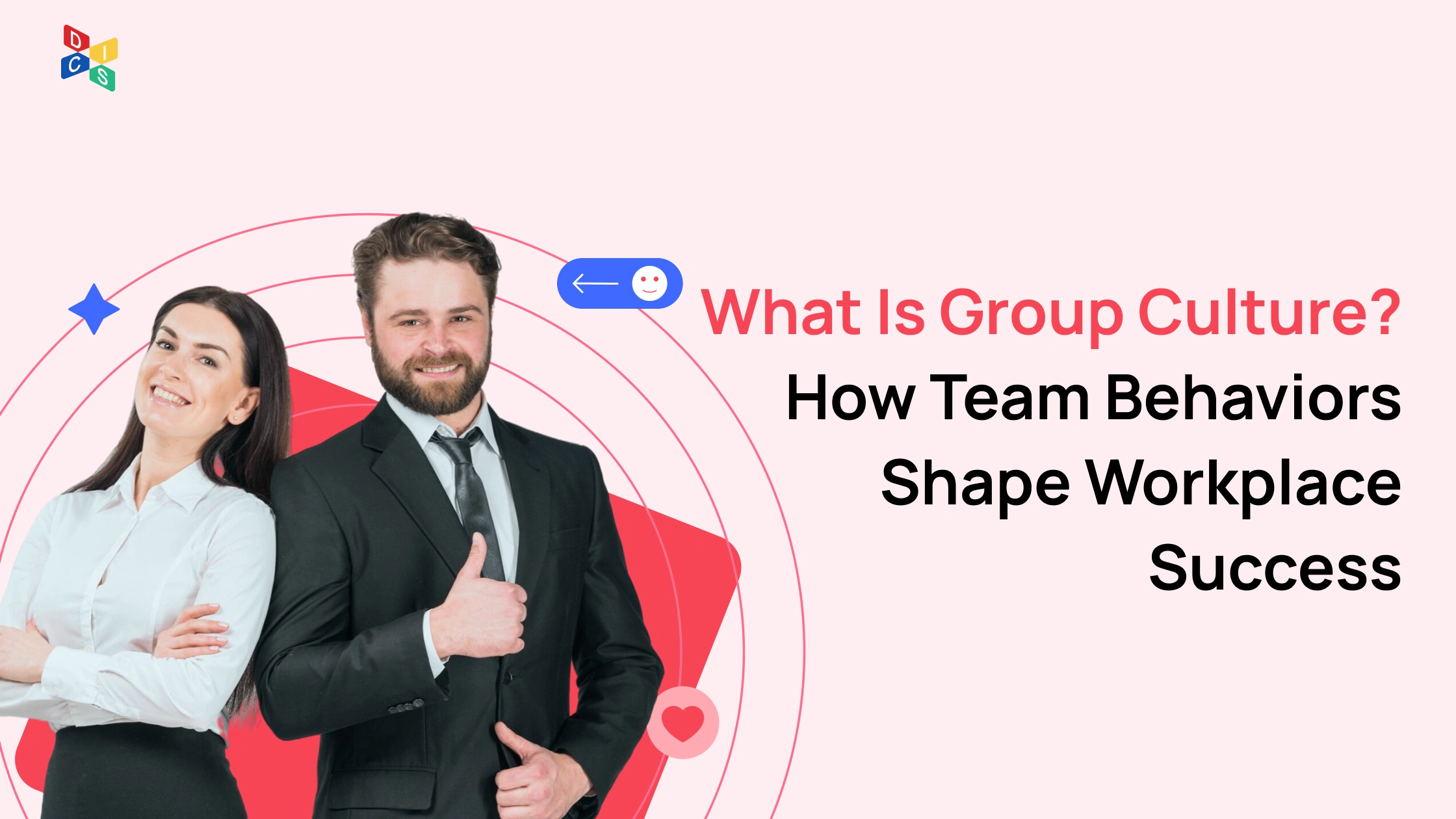Table of content
Workplace Personality: Discover Key Traits to Improve Team Performance
Explore workplace personality types and learn how understanding them can improve communication, collaboration, and career growth in any professional setting.
Ever felt like you’re speaking a different language from your coworkers, despite having the best intentions? Misunderstandings often stem not from what we say, but how we say it, and how others interpret it. That’s where workplace personality comes in. By learning how your teammates think, communicate, and operate, you can bridge gaps, reduce conflict, and foster stronger collaboration. In this article, we’ll explore how personality insights can transform your team dynamics and elevate your work environment.
What Is A Workplace Personality?
A workplace personality refers to the distinct behavioral traits and patterns an individual consistently brings to a professional setting. These traits influence how someone communicates, collaborates, handles pressure, and solves problems within a team environment. Recognizing workplace personality characteristics helps organizations foster smoother collaboration and reduce potential friction among colleagues.
Tools like the DISC model provide a structured way to identify and interpret these behavioral tendencies. By highlighting preferences in interaction, motivation, and task approach, DISC equips teams with practical insights to strengthen cooperation and productivity. It becomes easier to adapt to various dynamics when one understands how workplace personality influences decision-making, conflict resolution, and leadership effectiveness.
Employing such frameworks not only enhances interpersonal understanding but also creates a foundation for more empathetic and goal-oriented teamwork. Leaders and team members alike can benefit from acknowledging these traits to align roles, improve communication flow, and elevate overall performance.
Ever wonder what is DISC and how it shapes teamwork performance?
→ Discover DISC application for team building and DISC trainning for each personality!
Why Is Understanding Workplace Personalities Important?
Recognizing and appreciating various behavioral styles within the workplace can significantly enhance team dynamics and productivity. Gaining insight into each colleague’s workplace personality is not only useful in boosting professional collaboration but also strengthens interpersonal connections across the board. Below are five clear advantages that come from this awareness:
1. Reduce Miscommunication
With deeper awareness of those you interact with daily, you're more equipped to engage in ways that align with their preferences. While some teammates thrive in casual, conversational exchanges before discussing tasks, others value efficiency and brevity.
Aligning your communication style with their personality allows for smoother cooperation and helps reduce common points of confusion. This proactive approach fosters an inclusive environment where each person feels heard and respected.
2. Improve Conflict Resolution
Understanding how different individuals approach tension or disagreement opens the door to more thoughtful interactions. For example, recognizing that someone values a composed, fact-driven dialogue—while another may need empathy and emotional safety—can be a game-changer in difficult conversations. When you know how your own workplace personality responds under pressure, you’re more likely to pause, reflect, and choose a more constructive path forward. This awareness leads to more balanced solutions and long-term trust.
3. Build Empathy Across Departments
Cultivating an empathetic atmosphere begins with adjusting how you communicate. Empathy in the workplace means being mindful of how others prefer to exchange ideas and interact. Instead of projecting your own style, you shift your communication to match the other person’s preferences.
When you consider your colleague’s workplace personality, you can adapt your tone, pace, and content accordingly, leading to conversations that feel more comfortable and productive. Over time, this approach fosters stronger relationships and boosts team morale.
4. Promote Personality Diversity
Every team brings together individuals with different values, working styles, and personalities. Without awareness, these differences can lead to tension or misunderstandings. However, when you acknowledge and embrace each person’s unique personality, you gain clarity and reduce the urge to judge or react negatively. This understanding creates space for meaningful inclusivity and helps the team function more harmoniously, even in high-pressure situations.
5. Clarify Your Career Goals
When you gain clarity on your own personality type, you’re more likely to make career choices aligned with your strengths and values. Whether you excel in leadership, prefer behind-the-scenes roles, or feel energized by collaborative efforts, understanding your personality in workplace helps you identify ideal tasks and environments. This self-knowledge plays a critical role in mapping out your long-term goals and building a career path that’s both rewarding and sustainable.
4 Common Workplace Personality Types In Disc
Understanding the workplace personality of your team members can reveal why they behave the way they do and how best to collaborate. Among the many behavioral styles, 4 work personality types in the DISC test often emerge in professional environments.
1. The Driver in D Type
Overview of D Type in the Workplace
- Highly demonstrate goal-oriented and action-driven in decision-making
- Thrive in environments that offer autonomy or leadership roles
- Excel in fast-paced, high-pressure environments
- Confident, not afraid to confront issues head-on and take calculated risks
Team Contributions and Communication Style
- Take initiative and push projects forward without needing close supervision
- Communicate in a direct, results-oriented manner
- Excel at resolving challenges quickly and efficiently
- Lead by example, often motivating others through confidence and determination
Strengths and Potential Challenges
Strengths:
- Confident in leadership roles and decision-making
- Calm under pressure and in high-stakes situations
- Decisive when making tough or time-sensitive calls
Challenges:
- May come across as blunt or insensitive in communication style
- May overlook others' perspectives or emotions
- Can appear overly focused on outcomes at the expense of collaboration
All you need to know about BEST DISC type D personality careers
2. The Influencer in I Type
Overview of I Type in the workplace
- Demonstrate outgoing, energetic, and imaginative behavior
- Draw energy from team interactions and social engagement
- Express enthusiasm and emotions naturally in communication
- Thrive in dynamic environments that encourage creativity and spontaneity
- Represent a people-oriented workplace personality
- Motivate others with high energy and optimism
Team Contributions and Communication Style
- Excel in brainstorming sessions and idea generation
- Build strong emotional connections with teammates, fostering trust
- Frequently act as the social glue within teams, promoting collaboration and cohesion
- Communicate in an open, inspiring, and engaging manner
- Tend to focus on big-picture ideas rather than granular details
Strengths and Potential Challenges
Strengths:
- Great at rallying team spirit and driving morale
- Quick to build rapport and establish a positive team atmosphere
- Natural influencers who can persuade and inspire others
Challenges:
- May overlook important details due to impulsiveness
- Can be distracted or lose focus in long or structured tasks
- Prioritize social approval over objective decision-making
- Benefit from learning to pause, reflect, and actively listen for better collaboration
Find out BEST DISC type I personality careers
3. The Supporter in S Type
Overview of S Type in the workplace
- Support team members with steady, relationship-focused behavior
- Value harmony and emotional stability in the workplace
- Maintain peace over asserting personal opinions
- Thrive in environments with clear expectations and minimal conflict
- Avoid abrupt changes and prefer gradual transitions
Team Contribution and Communication Style
- Build cooperative and stable team dynamics
- Support group objectives with reliability and consistency
- Excel in roles requiring empathy, consistency, and nurturing relationships
- Communicate with warmth and attentiveness, avoiding confrontation
- Solve problems using proven methods and thoughtful, cautious approaches
- Follow structured guidance rather than taking the lead
Strengths and Potential Challenges
Strengths:
- Remain calm under pressure
- Promote harmony and unity within the team
- Offer emotional support and encouragement to others
Challenges:
- May hesitate to act without clear direction or reassurance
- Be uncomfortable with sudden changes or unpredictable environments
- Need regular feedback and patience from colleagues and leaders
Explore more about DISC test S personality careers
4. The Analyst in C type
Overview of C Type in the Workplace
- Detail-oriented and committed to accuracy in every task
- Independent and thrives in solo work settings
- Analytical with a strong preference for logic and structure
- Introverted and more comfortable with written communication than spontaneous interactions
Contribution to Team and Work Style
- Improve team quality by identifying gaps and preventing errors early
- Carefully analyze and perform a risk evaluation before decision-making
- Communicate with clarity when given time and written formats
- Work best in structured, well-organized environments with clear expectations
Strengths and Potential Challenges
Strengths
- Ensures precision and consistency in outputs
- Excels at spotting details others overlook
- Brings objectivity and logical reasoning to the team
Challenges
- Struggles with fast-paced, high-pressure situations
- May delay decisions due to overanalysis
- Can come across as distant in emotional or informal settings
All you need to know about DISC type C careers
How To Apply Workplace Personality Insights In Working
Effectively integrating workplace personality insights into daily operations can lead to stronger collaboration, better engagement, and improved team performance. Rather than taking a one-size-fits-all approach, leveraging personality knowledge helps align individual strengths with team goals. Below are three practical ways to apply these insights in your organization:
1. Encourage Team Personality Assessments
Start by introducing assessments that reveal each team member’s behavioral tendencies and motivators. Tools like the DISC profile or MBTI help uncover valuable personality traits that might otherwise go unnoticed. When everyone has a clearer understanding of themselves and others, it builds mutual respect and encourages more thoughtful collaboration. These insights also create a shared language around behavior, reducing misunderstandings and improving interpersonal dynamics.
2. Customize Communication Styles
Once personalities are identified, encourage team members to adapt their communication based on others’ preferences. A more analytical employee may prefer structured emails, while someone with a people-oriented workplace personality might respond better to casual, face-to-face conversations. Tailoring your communication style demonstrates empathy and boosts clarity, leading to fewer miscommunications and more efficient teamwork.
3. Design Roles Based On Strengths
Maximizing productivity starts with aligning tasks to natural talents. When individuals operate in roles that complement their personality, they tend to feel more engaged and perform at a higher level. For instance, someone with a detail-focused personality might excel in quality assurance, while a big-picture thinker could thrive in strategy or innovation roles. By placing people where they naturally shine, you help both the individual and the organization grow.
4. Provide Personality-Based Feedback And Coaching
Delivering feedback through the lens of workplace personality makes performance conversations more constructive and impactful. Instead of relying on a one-size-fits-all approach, tailor your coaching style to align with each employee’s personality traits. For example, a D-type may prefer direct, results-focused feedback, while an S-type might respond better to encouragement and emotional support.
When feedback resonates with how someone naturally thinks and processes information, they’re more likely to absorb it positively and take action. Integrating personality awareness into your coaching strategy not only builds trust but also accelerates individual growth and team development. This personalized method ensures that your people feel seen, understood, and empowered to improve.
5. Tailor Motivation Strategies To Personality Types
Different people are driven by different motivators, and personality insights can help uncover what truly inspires each team member. While an I-type may be energized by public recognition or team celebrations, a C-type might prefer private acknowledgment for precision and accuracy.
Understanding these distinctions allows leaders to craft motivation strategies that resonate on a personal level, leading to higher engagement and satisfaction. Whether it’s assigning stretch projects, offering mentorship, or providing autonomy, aligning rewards and encouragement with individual personality styles ensures that employees feel valued and stay committed to their work.
How To Identify Your Own Workplace Personality?
While surface-level behaviors can offer clues, using structured models like DISC provides a far more reliable way to understand and manage personality types. DISC stands out in professional settings due to its simplicity, clarity, and real-world applicability, making it especially effective for teams looking to boost communication and collaboration.
A simple way to start recognizing someone’s workplace personality is by locating their position within the DISC workplace personality test free. This framework divides behavior into four core quadrants, helping teams quickly interpret communication styles and preferences.
Those in the upper half of the map: D (Dominance) and I (Influence) types, often enjoy fast-paced, energetic interactions. In contrast, the lower half: S (Steadiness) and C (Compliance) types typically value trust-building and thoughtful dialogue.
The left side of the map represents more formal, task-focused personalities (D and C), while the right side highlights more relaxed, people-oriented types (I and S). Understanding this simple division allows for more tailored and respectful workplace interactions.
To quickly pinpoint where someone falls on the map, just ask:
- Do you communicate more formally or casually?
- Do you focus more on the big picture or fine details?
These two questions can lead you to a likely DISC type:
- D-type: formal + big-picture
- I-type: casual + big-picture
- S-type: casual + detail-oriented
- C-type: formal + detail-oriented
Although you can often make educated guesses through observation, such as noting email tone or meeting style, free DISC assessment remain the most accurate route to determine someone's personality in the workplace. Once clearly defined, these profiles unlock targeted strategies for leadership, team development, and employee engagement.
Conclusion
Understanding workplace personality isn't just a nice-to-have; it's a must for building productive, respectful, and high-performing teams. When you take time to recognize the unique styles and preferences of those around you, communication becomes clearer, collaboration runs smoothly, and morale improves. Whether you're a leader or team member, applying personality insights can reshape how your workplace functions. Start small, stay curious, and watch how the right awareness leads to meaningful results.
FAQs
1. How Can Managers Use Workplace Personality Insights Effectively?
Managers can use workplace personality insights to build stronger teams, motivate individuals, and resolve conflict more effectively. By knowing each team member’s personality style, a manager can assign roles that match strengths, communicate in a way that resonates, and create personalized development plans. For instance, a C-type employee may need time to process data before making decisions, while a D-type may appreciate quick, results-focused communication. This tailored leadership boosts engagement, trust, and performance. Personality assessments also help during hiring and succession planning by identifying culture-fit and leadership potential.
2. How Do You Identify Someone’s Workplace Personality Without A Test?
You can often observe personality through how someone communicates, responds to challenges, and interacts in teams. Ask yourself: Are they task- or people-focused? Do they speak directly or with emotional nuance? Are they detail-driven or big-picture thinkers?
These cues can point to DISC styles—D (direct and assertive), I (energetic and sociable), S (steady and patient), or C (logical and precise). You can also ask simple questions like: "Do you prefer structure or flexibility?" While not as accurate as formal assessments, these observations provide a starting point for understanding and adapting to others' styles.
3. What’s The Best Way To Improve Collaboration Using Workplace Personality?
The best way to enhance collaboration through workplace personality is to increase mutual awareness and respect. Start by encouraging personality assessments for all team members, then hold discussions about how each style works best. Highlight individual strengths and potential challenges so team members can offer support where needed. Use personality data to structure roles, assign responsibilities, and shape communication methods. For example, pair complementary personalities on projects to balance creativity with precision. This understanding leads to more balanced contributions, reduced tension, and higher-quality outcomes.
4. Can Workplace Personality Change Over Time?
Yes, but only to some extent. While core traits of your personality tend to remain stable, life experiences, job roles, and conscious development efforts can influence behavior. For instance, someone naturally reserved might learn to speak up more in meetings through practice and feedback. However, their underlying preference for reflection over spontaneity is unlikely to disappear. Personality development doesn’t mean becoming someone else—it means adapting your style to meet the needs of different environments while staying authentic. Tools like DISC can help track these shifts and provide actionable growth strategies.


Don't Let Your Potential Stay Hidden!
Take the DISC test today and discover your unique 'YOU', with deep insights into your true personality and potential.

Represents your instinctive behaviors and desires.
Shows the behavioral tendencies you think you should exhibit in specific situations.
Related articles
You may also be interested in
 DISCJan 06, 2026
DISCJan 06, 2026DISC Personality Test for Sales: Unlock Your Team’s Full Potential
DISC Personality Test for Sales helps sales teams improve role fit and performance. Learn how DISC boosts hiring, coaching, and customer alignment.
 DISCJan 06, 2026
DISCJan 06, 2026How to Read DISC Test Results: Understanding Your Personality Profile
Learn how to read DISC test results and understand your personality profile. Discover how DISC can enhance communication, teamwork, and career growth.
 DISCDec 31, 2025
DISCDec 31, 2025What Is Group Culture? How Team Behaviors Shape Workplace Success
Discover what is group culture and how it shapes team dynamics, decision-making, and performance. Learn how the DISC model can help improve your team’s culture.
